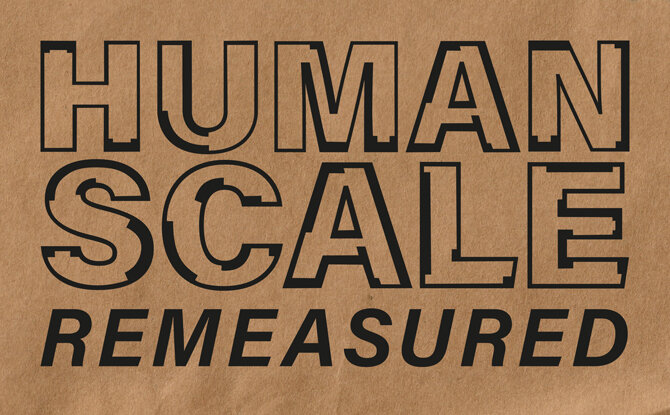
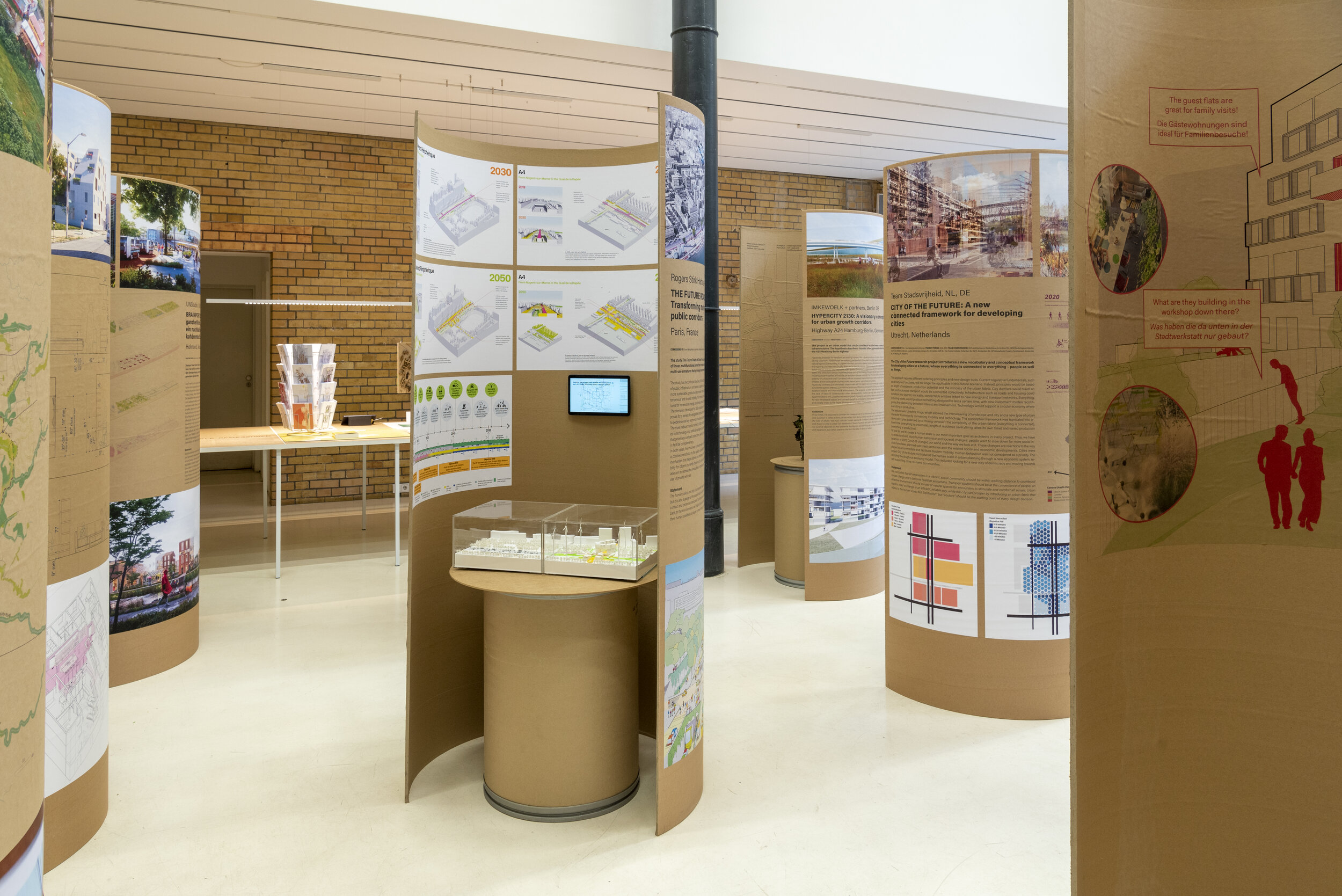
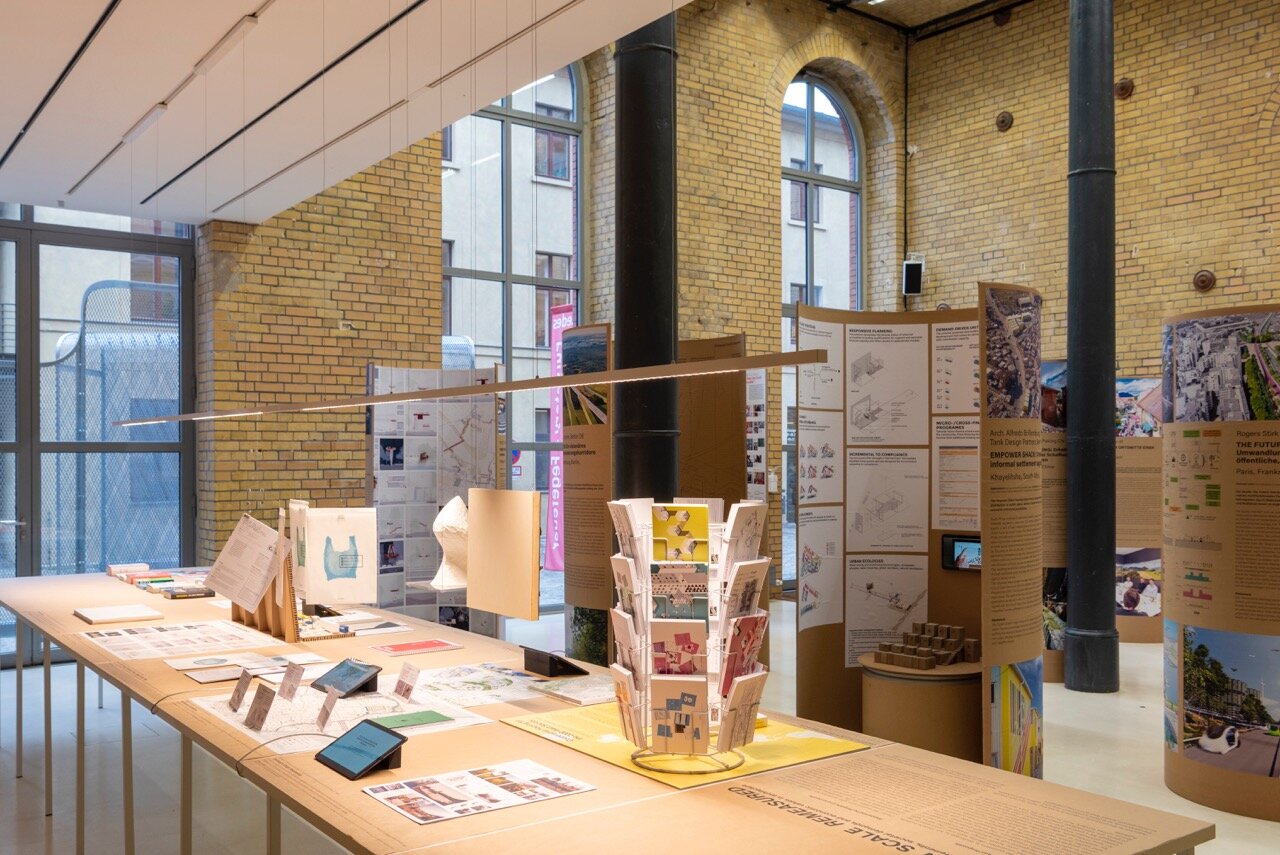
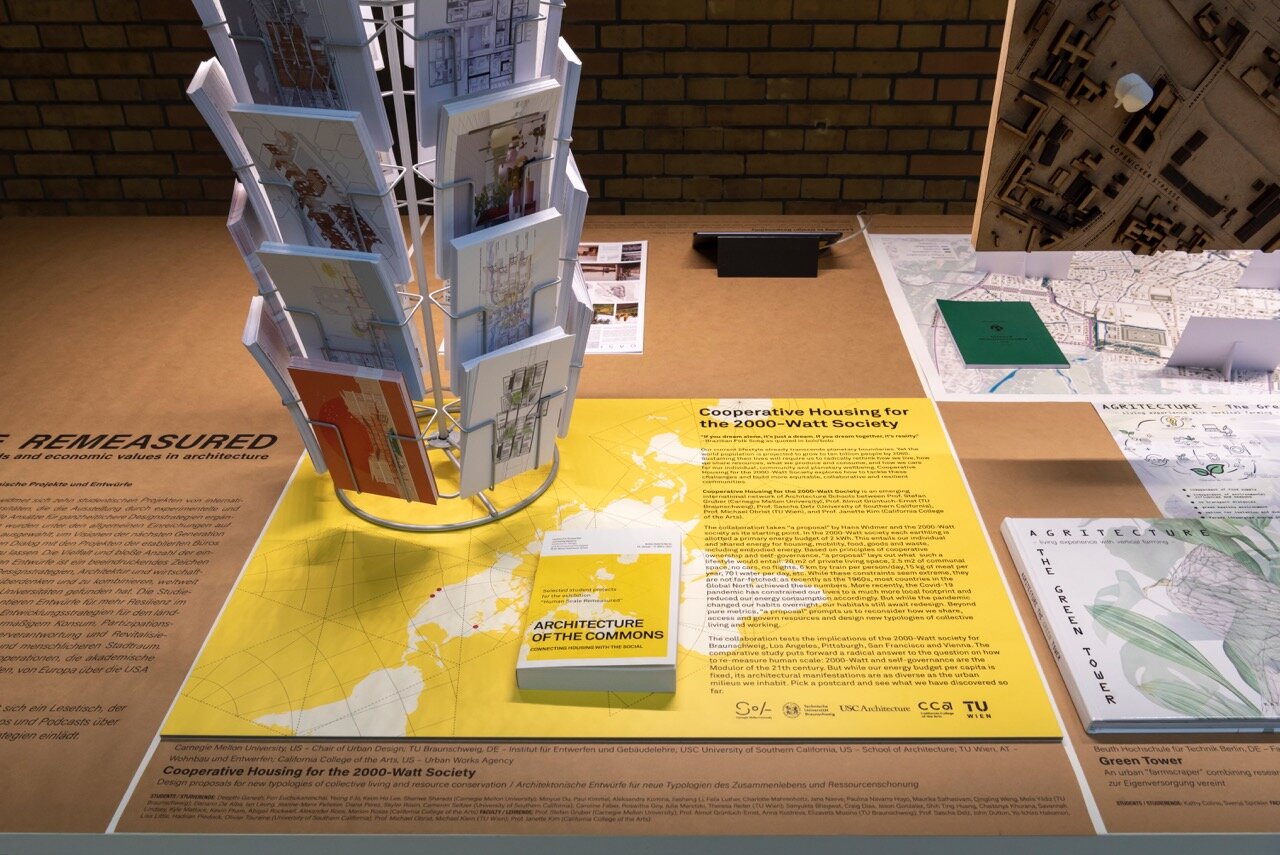
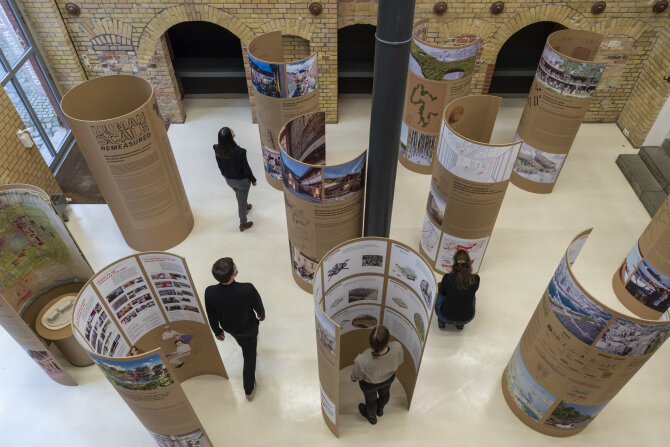
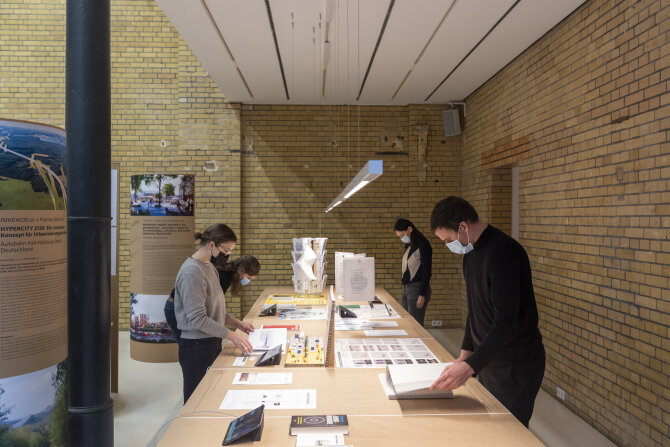
HUMAN SCALE REMEASURED
New spatial requirements, societal demands and economic values in Architecture
Aedes Architecture Forum, Berlin
16 January - 13 May 2021
Building on his Spring 2020 Cooperative Housing studio, SoA Associate Professor Stefan Gruber has initiated an international cooperation between five schools of architecture that investigate Cooperative Housing for the 2000-Watt Society. The emerging network includes professors Almut Grüntuch-Ernst (TU Braunschweig), Sascha Delz (University of Southern California), Michael Obrist (TU Wien), and Jannette Kim (California College of the Arts). Together they explore how to address the intertwined issues of affordable housing and resource scarcity against the backdrop of ecological, economic, and political crisis and design for more equitable, collaborative, and resilient communities.
To kick-off their collaboration, the five universities have been selected to take part in the group exhibition “Human Scale Remeasured” currently on show at the Aedes Architecture Forum in Berlin. From CMU’s Spring 2020 studio, cooperative housing designs from Deepthi Ganesh, Fon Euchukanonchai, Yeong Il Jo, Keon Ho Lee, and Shariwa Sharada are on display along with postcards from all other partner universities.
The exhibition, curated by the Aedes Metropolitan Laboratory, presents exemplary built projects and outstanding conceptual models by architects and planners from all over the world. These proposals are the result of a new way of thinking in which cities, built living spaces, and working environments are not only designed and realized in an ecologically sustainable way, but also implemented with the objective of restoring a social and economic balance.
The exhibition demonstrates how 15 selected architecture and urban projects and 10 academic contributions from international universities can initiate positive change by targeting challenges holistically and implementing approaches accordingly.
With the exhibition, Aedes proposes a solution-oriented contribution to the discussion that our way of life is losing its measure in overwhelming expansions and short-sighted decision-making.
In light of the current pandemic crisis, there is a growing sense of responsibility among architects, urbanists, researchers, and economists worldwide to use their knowledge to develop designs and models for new spatial requirements, societal demands, and economic values measured to the human scale. Worldwide emergencies, such as climate change, pandemics, but also rapid growth, social and global inequalities, and migration waves demonstrate the urgent need to reduce the impact of urban life on resources, from the scale of the individual to an international approach. The momentum of the current crisis also leads, besides hardship and struggle, to constructive reflections on new concepts and typologies for living, learning, working, and leisure beyond short-term economic profit in order to instigate social, infrastructural, and ecological change.
For more information, visit The Aedes Metropolitan Laboratory website.
Cooperative Housing for the 2000-Watt Society
Design proposals for new typologies of collective living and resource conservation.
Students: Deepthi Ganesh, Fon Euchukanonchai, Yeong Il Jo, Keon Ho Lee, Shariwa Sharada (Carnegie Mellon University); Minyue Du, Paul Kimmel, Aleksandra Komina, Jiasheng Li, Felix Luther, Charlotte Mahrenholtz, Jana Naeve, Paulina Navarro Hoyo, Maurika Sathasivam, Qingling Weng, Melis Yildiz (TU Braunschweig); Danann De Alba, Ian Leung, Jeanne-Marie Pelletier, Diana Perez, Skyler Rosin, Cameron Seltzer (University of Southern California); Caroline Faber, Roswitha Goy, Julia Maretzki, Theresa Reiter (TU Wien); Sanyukta Bhagwat, Craig Dias, Jason Gonzalez, Shih Ting Huang, Chaitanya Khurana, Savannah Lindsey, Kyle Matlock, Kevin Pham, Abigail Rockwell, Alexander Roos, Marion Rosas (California College of the Arts)
Faculty: Prof. Stefan Gruber (Carnegie Mellon University); Prof. Almut Grüntuch-Ernst, Anna Kostreva, Elizaveta Mosina (TU Braunschweig); Prof. Sascha Delz, John Dutton, Yo-Ichiro Hakomori, Lisa Little, Hadrian Predock, Olivier Touraine (University of Southern California); Prof. Michael Obrist, Michael Klein (TU Wien); Prof. Janette Kim (California College of the Arts)

